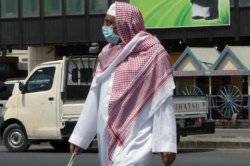Saudi Arabia has announced that another 13 people have died from the MERS coronavirus in the past day, as the World Health Organization prepares for an emergency meeting over concerns about the spread of the disease.
The Middle East Respiratory System coronavirus has now killed 139 people and infected 480 others in the kingdom since it first appeared in 2012.
In its most recent tally, issued on Saturday, the Saudi health ministry said six people died from the disease in the past 24 hours.
Three women, aged 22, 26 and 35, died in the capital, Riyadh, a 68-year-old woman and a 78-year-old man in the western city of Medina, and a man in his 70s in the commercial capital, Jeddah.
The ministry on Friday also said three men aged 94, 51 and 42, died from MERS in the Jeddah region.
It added that a 74-year-old man died in the city of Taef, while a woman, 71, and two men, aged 81 and 25, died in the capital.
The announcement of the latest fatalities came the day after the WHO said it would hold an emergency meeting on Tuesday to discuss the spread of the virus.
The UN health agency's emergency committee has already met four times to talk about the coronavirus since it surfaced in 2012.
"The increase in the number of cases in different countries raises a number of questions," said Tarik Jasarevic, a WHO spokesman.
Medical conundrum
MERS is considered a deadlier, but less-transmissible cousin of the SARS virus that broke out in Asia in 2003, infecting 8,273 people and killing nearly 800.
Like SARS, it appears to cause a lung infection, with patients suffering coughing; breathing difficulties and a temperature, but MERS differs in that it also causes rapid kidney failure.
Experts are struggling to understand the disease and there are currently no vaccines or antiviral treatments.
MERS cases have also been reported in the United Arab Emirates, Jordan, Egypt, Lebanon and the US, with most involving people who had travelled to Saudi Arabia or worked there.
But the first American diagnosed with the virus has been released from hospital and is considered fully recovered.
Dr Alan Kumar, a community hospital medical information officer, said the patient now tested negative for MERS and "poses no threat to the community".
The WHO said most human-to-human transmissions of the virus occurs in health-care facilities.
PHOTO CAPTION
MERS toll rises with new Saudi Arabia deaths.
Aljazeera


 Home
Home Discover Islam
Discover Islam Quran Recitations
Quran Recitations Lectures
Lectures
 Fatwa
Fatwa Articles
Articles Fiqh
Fiqh E-Books
E-Books Boys & Girls
Boys & Girls  Articles
Articles










